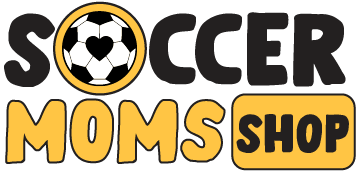Is your child one of the smallest in the team and are they one of the smallest each week when you arrive at match day? If so there may be some useful tips here to help you navigate what is potentially an area riddled with issues.
The first thing to state here is that sport is a marathon and not a sprint. Much has been made about early representative selection and it is no surprise that these early representative teams are dominated by children born in the first quarter of the sporting year. For football in the UK that would mean being born between September and November and for Ice Hockey in the USA born between January and March.
These children through no fault of their own are at a huge advantage and some may well be as much as 11 months older and more physically developed than some of their counterparts.
There has been a lot of criticism of this early representation, many upset that these children through genetic luck get access to the best coaching, the best facilities and the best environments at a younger age. However, if you have the small child take some consolation in the following:
Of all the boys who enter a football academy at the age of 9, less than half of 1% will make it. The early developers success rate in the long run is very low.
In the England rugby squad over the last few years there has been an even split of players from each quarter of the sporting year highlighting the importance of not placing too much significance at an early age on where your child stands in the pecking order.
With this in mind, how do you cope with your child struggling physically, getting knocked around a bit, always looking that yard slower than some of the others? Well the answer is you probably don’t deep down. It is tough for a parent to watch and none of us like to see our children struggle.
We want you to take some comfort in what you have read above and here we have some useful tips to help you manage your smaller child:
- Be positive at all times, continue to positively reinforce how they are doing.
- Ensure that your child is playing at a level appropriate to them at that time, don’t let them suffer for too long in the wrong environment so that they lose confidence and fall out of love with what they are doing.
- Really focus on praising the processes and not the outcomes. Really look at their work rate, technique, resilience, and decision making etc as opposed to looking at the scoreline.
- Ensure that your child understands that their peers may be successful now and having a greater share of the glory but that may not be the case in the future. Your child may struggle to believe that particularly in this age of instant gratification but at least it will be somewhere in the back of their mind during those moments.
- Make sure that the environment that your child is involved in is far more centred around player development than results.
- Make sure that your child’s coach has an understanding of this – certain parts of training sessions can be adapted accordingly.
- Teach them to be tough, dig in and overcome challenges and obstacles. If they have been brought up this way once they develop physically they will have a really strong foundation to build on.
There are a few things that you probably want to avoid in the early stages of managing your smaller child:
- Don’t panic if they are struggling physically just as long as it is not becoming a major issue for them in terms of them having some success during training or in matches.
- Don’t allow them to give up at the first sign of difficulty. Encourage them to keep persevering and then make sure you are there to point out that the perseverance has paid off.
- Don’t focus on the result or the early selection of teams. As long as your child is playing at a level appropriate to them, that they are progressing and enjoying it then that should be fine by you the parent.
We hope that you have found the above useful and that you can start adding some of the strategies into your weekly routine to ensure that your smaller child(potentially a later developer) can still harness the same enjoyment from their sporting experience as the older, more physically mature child. At the end of the day all of these children should be having fun and enjoying their whole sporting experience.
Source: https://www.parentsinsport.co.uk
If you like this article, Follow us on FACEBOOK and INSTAGRAM and PINTEREST!

